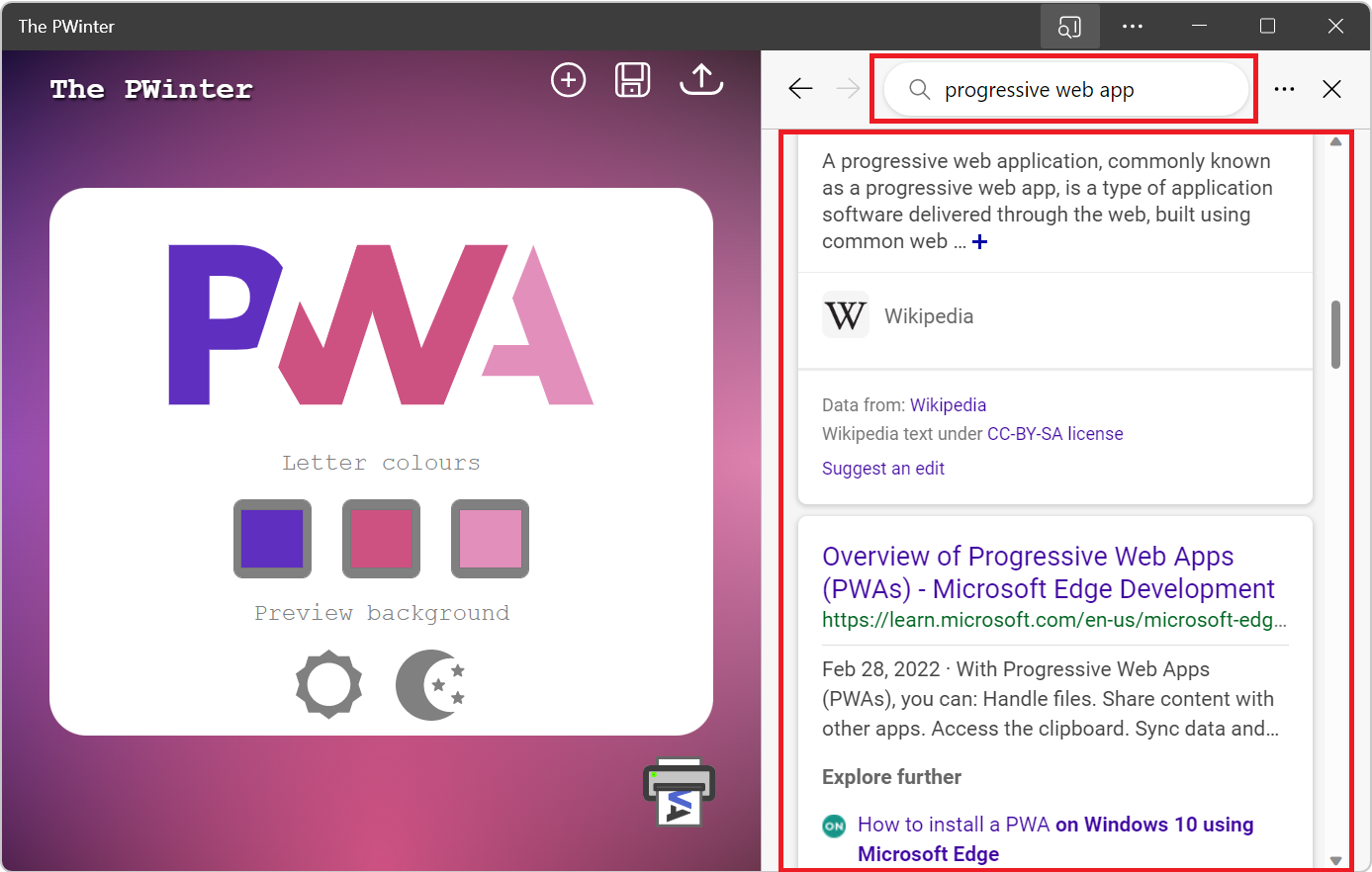Blitz News Digest
Stay updated with the latest trends and insights.
Progressive Web Apps: The Future of Browsers or Just a Fad?
Discover if Progressive Web Apps are a revolutionary breakthrough or a passing trend that will change the future of web browsing forever!
What Are Progressive Web Apps and Why Do They Matter?
Progressive Web Apps (PWAs) are web applications that provide a user experience similar to native mobile apps but are built using standard web technologies like HTML, CSS, and JavaScript. They leverage modern web capabilities to deliver high performance, reliability, and engagement, making them accessible on any device with a web browser. PWAs can work offline or on low-quality networks, enhancing their usability. Some core features of PWAs include:
- Responsive design that adapts to different screen sizes
- App-like interface that mimics native applications
- Push notifications to keep users engaged
- Service workers that enable offline functionality
Understanding why PWAs matter is essential in today's digital landscape. They significantly improve user experience by offering fast load times and seamless interaction, which can lead to lower bounce rates and higher conversions. Additionally, PWAs are highly discoverable since they can be indexed by search engines, making them crucial for SEO performance. Furthermore, they eliminate the need for users to download apps from an app store, resulting in lower friction and higher adoption rates. As mobile usage continues to rise, investing in Progressive Web Apps can help businesses stay competitive and reach a broader audience.

5 Key Benefits of Progressive Web Apps for Businesses
Progressive Web Apps (PWAs) offer businesses a variety of advantages that enhance user experience and increase engagement. First and foremost, PWAs combine the best features of both web and mobile applications, providing fast loading times and a seamless experience across devices. This speed not only improves user satisfaction but also positively impacts search engine rankings, as faster websites tend to perform better in SEO metrics. Additionally, they function offline or in low-quality network conditions, ensuring that users can access content anytime, anywhere, which significantly enhances customer retention rates.
Another key benefit of PWAs is their cost-effectiveness. Businesses can save time and resources by developing a single PWA rather than separate apps for different platforms, reducing maintenance and development costs. Furthermore, PWAs are easily discoverable through search engines, unlike traditional apps that rely on app stores for visibility. This leads to an increase in reach and potential customers. Lastly, PWAs provide enhanced security as they are served over HTTPS, establishing a secure connection with users and boosting customer trust in the brand.
Are Progressive Web Apps the Next Generation of Web Development?
As the digital landscape continues to evolve, Progressive Web Apps (PWAs) are emerging as a significant trend in the realm of web development. These innovative applications combine the best of web and mobile apps, offering users a seamless experience across devices. With features such as offline access, push notifications, and faster loading times, PWAs enhance user engagement and retention, making them an appealing choice for businesses. Moreover, the ability to work without an internet connection ensures that users can interact with the app anytime and anywhere, thereby significantly boosting accessibility.
The rise of PWAs can be attributed to their ability to provide a more responsive and efficient experience compared to traditional web applications. By utilizing modern web capabilities, developers can create applications that are not only lightweight but also perform exceptionally well across various platforms. This shift signifies a move towards user-centric design, prioritizing performance and experience over merely aesthetic elements. As more businesses recognize the advantages of PWAs, it is likely that they will become a dominant force in web development, paving the way for a new era of digital interaction.